History and Memory: For Akiko and Takashige is a american film of genre Documentary released in USA on 1 january 1991
History and Memory: For Akiko and Takashige (1991)
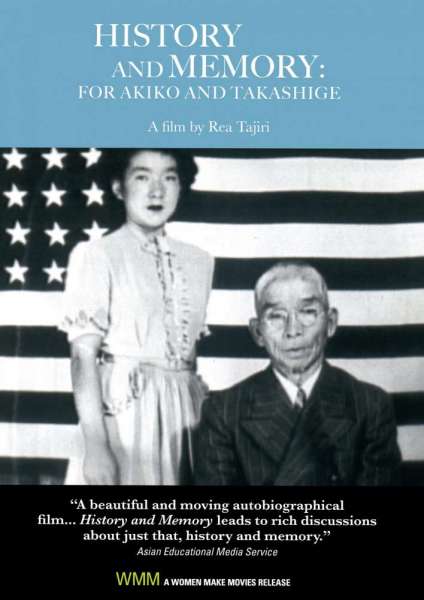
If you like this film, let us know!
- Infos
- Casting
- Technical infos
- Photos
- Videos
- Film quotes
- Characters
- Music
- Awards
Released in USA 1 january 1991
Length 32minutes
OriginUSA
Genres Documentary
Themes Prison films, Films about racism, Documentary films about racism, Documentary films about law, Documentary films about war, Documentary films about historical events, Political films, Documentary films about World War II
Rating67%










History and Memory: For Akiko and Takashige is a 1991 documentary film by Rea Tajiri. In her film, Tajiri recalls her family's experience of the American internment of the Japanese during World War II.
History and Memory explores the story beyond the recorded history of the internment of the Japanese and Japanese Americans. The film premiered at the 1991 Whitney Biennial exhibition, and has since been screened over 250 times.
Comments
Leave comment :
Suggestions of similar film to History and Memory: For Akiko and Takashige
There are 8953 with the same cinematographic genres, 9408 films with the same themes (including 8 films with the same 8 themes than History and Memory: For Akiko and Takashige), to have finally 70 suggestions of similar films.If you liked History and Memory: For Akiko and Takashige, you will probably like those similar films :
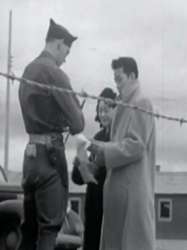
A Challenge To Democracy (1944)
, 21minutesOrigin USA
Genres War, Documentary, Historical
Themes Prison films, Films about racism, Documentary films about racism, Documentary films about law, Documentary films about war, Documentary films about historical events, Political films, Documentary films about World War II
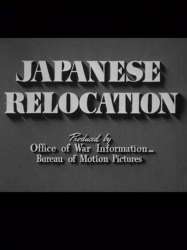
Japanese Relocation (1942)
, 9minutesOrigin USA
Genres Documentary
Themes Prison films, Films about racism, Documentary films about racism, Documentary films about law, Documentary films about war, Documentary films about historical events, Political films, Documentary films about World War II
Rating50%





 , 1h31
, 1h31Directed by Errol Morris
Origin USA
Genres Drama, Documentary
Themes Prison films, Films about racism, Films about religion, Documentary films about racism, Documentary films about law, Documentary films about war, Documentary films about historical events, Documentaire sur une personnalité, Documentary films about religion, Political films, Films about capital punishment, Films about Jews and Judaism, Documentary films about World War II, Documentary films about law enforcement, Négationnisme
Actors Errol Morris
Rating74%





Using film made at American prisons, Leuchter talked about his upbringing where his father was a corrections officer. Through his family associations, young Leuchter claimed he was able to witness an execution performed in an electric chair. Leuchter's impression of the event was that the electric chairs used by American prisons were unsafe and often ineffective. The event led him to design modifications to the device that were adopted by many American states.

Unfinished Business (1986)
, 1hOrigin USA
Genres War, Documentary, Historical
Themes Prison films, Films about racism, Documentary films about racism, Documentary films about law, Documentary films about war, Documentary films about historical events, Political films, Documentary films about World War II
Actors Amy Hill
Rating65%





 , 28minutes
, 28minutesOrigin USA
Genres Documentary
Themes Prison films, Films about racism, Documentary films about the visual arts, Documentary films about racism, Documentary films about law, Documentary films about war, Documentary films about historical events, Documentaire sur une personnalité, Political films, Documentary films about World War II
Rating73%





Le film est consacré à Estelle Ishigo (1899-1990), une artiste qui est allée volontairement dans un camp d'internement pour japonais lors de la Seconde Guerre mondiale.

To Be Takei (2014)
, 1h30Origin USA
Genres Documentary
Themes Prison films, Films about racism, Films about sexuality, Films about television, LGBT-related films, Documentary films about business, Documentary films about the film industry, Documentary films about racism, Documentary films about law, Documentary films about war, Documentary films about historical events, Documentaire sur l'homosexualité, Political films, Documentary films about World War II, Space opera, LGBT-related films, LGBT-related film
Actors George Takei, Leonard Nimoy, Walter Koenig, William Shatner, Nichelle Nichols, Lea Salonga
Rating69%





The film narrates the life journey of actor and activist George Takei.
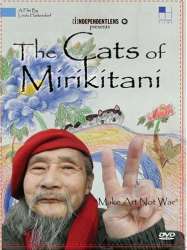
The Cats of Mirikitani (2006)
, 1h14Genres Documentary
Themes Films based on the September 11 attacks, Prison films, Films about racism, Films about religion, Films about terrorism, Transport films, Aviation films, Documentary films about the visual arts, Documentary films about racism, Documentary films about law, Documentary films about war, Documentary films about historical events, Documentaire sur une personnalité, Documentary films about politics, Documentary films about religion, Documentary films about technology, Documentary films about terrorism, Political films, Films about Islam, Documentary films about World War II, Disaster films, Films about aviation accidents or incidents, Films about hijackings
Rating81%





In 2001 Japanese American painter, Jimmy Mirikitani (born Tsutomu Mirikitani), and over 80 years old, was living on the streets of lower Manhattan. Filmmaker, Linda Hattendorf, took an interest and began
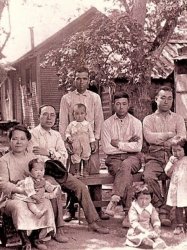
A Family Gathering (1988)
, 30minutesOrigin USA
Genres Documentary
Themes Films about families, Films about immigration, Prison films, Films about racism, Documentary films about business, Documentary films about the film industry, Documentary films about racism, Documentary films about law, Documentary films about war, Documentary films about historical events, Documentaire sur une personnalité, Political films, Documentary films about World War II, Autobiographical documentary films
Actors Keith Hamilton Cobb
Rating23%





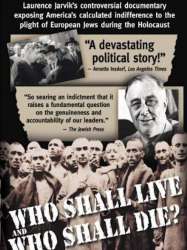 , 1h30
, 1h30Origin USA
Genres Documentary
Themes Films about racism, Films about religion, Documentary films about racism, Documentary films about law, Documentary films about war, Documentary films about historical events, Documentaire sur une personnalité, Documentary films about politics, Documentary films about religion, Political films, Films about Jews and Judaism, Documentary films about World War II
Rating74%





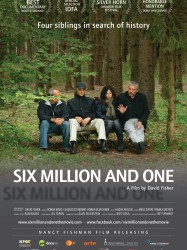
Six Million and One (2012)
, 1h33Genres Documentary
Themes Films about racism, Films about religion, Documentary films about racism, Documentary films about law, Documentary films about war, Documentary films about historical events, Documentaire sur une personnalité, Documentary films about religion, Political films, Films about Jews and Judaism, Documentary films about World War II
Rating66%





Joseph Fischer's memoir was discovered only after his death. His children refused to confront it, except for David, the filmmaker, for whom it became a compass for a long journey. When David found it unbearable to be alone in the wake of his father's survival story and in his struggle not to lose his sanity, he convinced his brothers and sister to join him in the hope that this would also contribute to releasing tensions and bring them as close as they used to be. His siblings, for their part, couldn’t understand why anyone should want to dig into the past instead of enjoying life in the present. The journey eventually leads the Fishers into the dark depths of the B8 Bergkristall tunnels, part of the Austrian KZ Gusen II concentration camp, where their father endured forced labor during the Holocaust. Illuminated only by flashlights, they seek meaning in their personal and family histories and undergo surgical and revealing discussions about family, survival and individualism only to come to the realization that they are unable to fully understand their father's past and the events that haunted him. Joseph Fischer's last couple of weeks at Gunskirchen concentration camp, were an inhuman experience that blocked his writing. In order to find out what his father failed to describe about Gunskirchen's liberation David located veterans of the 71st Infantry Division who liberated the camp. The elderly soldiers are still haunted and traumatized by the horrific sights they came across when entering the camp. Through their journey, the Fishers become emblematic of the entire second generation who are still grappling with the experience of their survivor parents.
 Connection
Connection